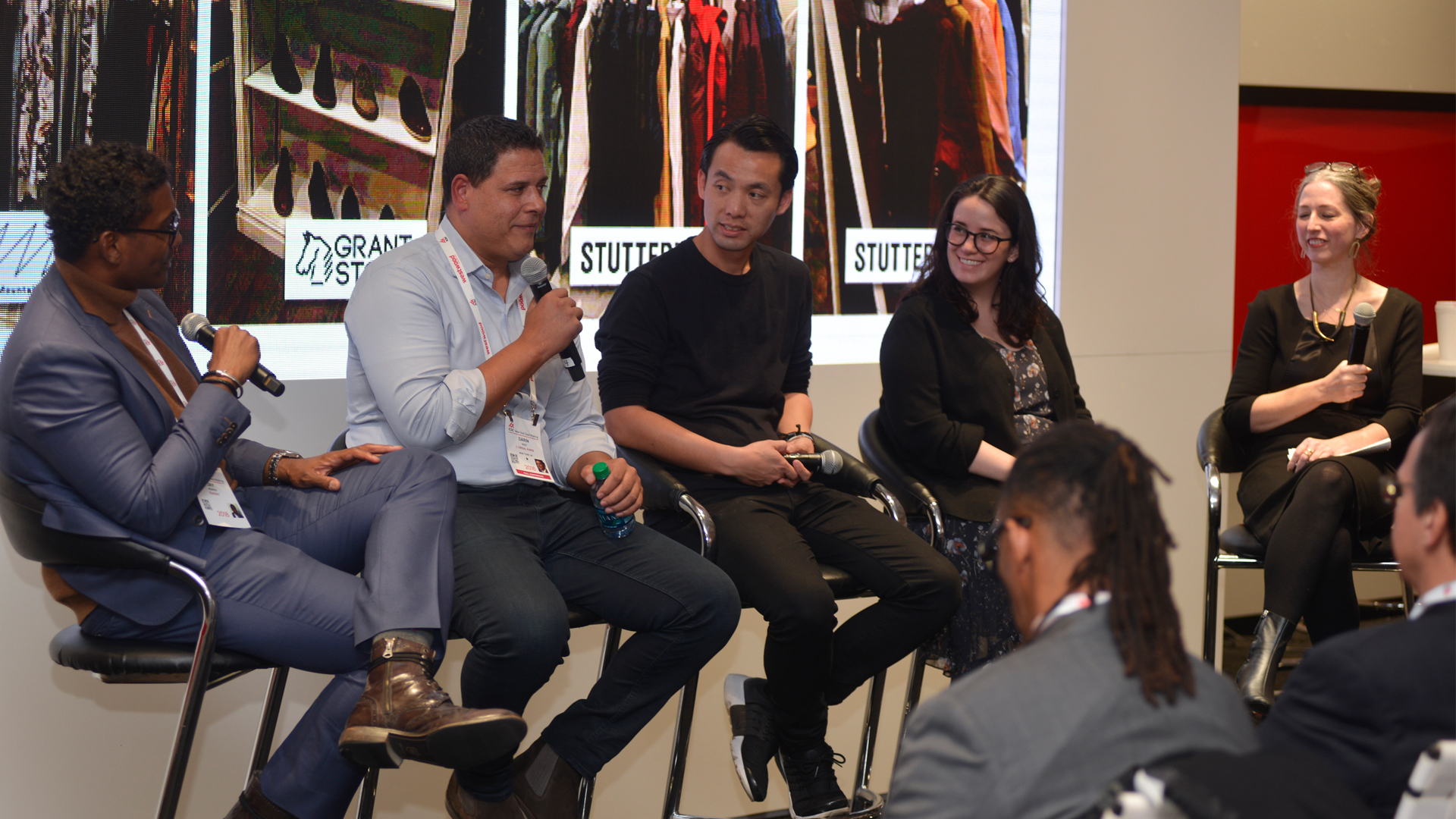Opening physical stores is the only way for retail startups to grow, but these concepts need a lot of help to do so successfully. Many entrepreneurs know much about their brands, but next to nothing about merchandising or markets.

As it happens, there are enterprises aplenty out there ready to help. One such is Guesst, a company founded this year that connects startup brands with existing retailers willing to set aside sections of their own stores for the showcasing of the startups' products. Doing it this way is a lot cheaper than doing pop-ups, let alone conventional stores, according to Jay Norris, Guesst co-founder and CEO, and Michele Varian, co-founder and chief retail strategist, speaking at the Retail in Focus lounge at ICSC’s New York Deal Making on Wednesday.

Jay Norris, co-founder and CEO of Guesst
After Guesst has vetted both retailer and brand, the two parties set about negotiating a price and contracting for store space. Guesst is looking to expand beyond New York City, where it launched its concept, at retailer Steven Alan.
Mall landlords, too, are helping digitally native brands test out physical retailing. Macerich’s BrandBox provides newbies not only with space, but also with reams of data on customer traffic and trade areas, and with guidance for store design and merchandising. New concepts occupy BrandBox sites for as long as 12 months before transitioning to their own stores, explained Kevin McKenzie, executive vice president and chief digital officer of Macerich and BrandBox.

Kevin McKenzie, executive vice president and chief digital officer of Macerich and BrandBox
But new retail concepts still require assistance with the transition from test spaces to their own stores, noted panelists at a session moderated by CNBC retail correspondent Lauren Thomas.
“What you have to do as a landlord is make sure that the pasture is green,” said Pano Anthos, managing partner of XRC Labs, which matches new retail concepts with investors and entrepreneurs. “If the platform isn’t right for these brands, they will fail.”

Pano Anthos, managing partner of XRC Labs
One obstacle for entrepreneurs is the local and state permitting process, which can be long, observed several panelists. This can be particularly irksome, because entrepreneurs are used to working quickly to seize opportunities and meet customer demands, and they need to be able to execute fast, explained Addie Lerner, a principal at investment and consulting firm General Catalyst.
Speed is critical to Allbirds, the digitally native shoe retailer that is opening stores in the U.S. and overseas. In foreign markets, any slow-footedness can mean that copycats will get in first with knock-off products, asserted panel participant Travis Boyce, retail lead at Allbirds.
And it is not only the new concepts that need a hand — veteran retailers from overseas may find the U.S. retail scene particularly daunting, and many of them have tried and failed over the years. Help is now available to them, too, in the form of HiO, a recently launched company that offers brands store space, staffing and general expertise. “We are creating a platform that will enable them to test a foreign market,” said Sever Garcia, a co-founder of HiO and the CEO of management consultant firm SGN Group.

Sever Garcia, co-founder of HiO and the CEO of SGN Group
Ideally, these store-test platforms should be clustered in the same area of a shopping center, the panelists concurred. “It would scream to the customer, ‘This is where you can find the new brands,’ ” Garcia said.
Anthos predicts that future retail startups will go straight to opening stores — delaying the digital stage until they are physically established. After all, he argues, stores are their most important channel.
By Edmund Mander
Director, Editor-In-Chief/SCT


